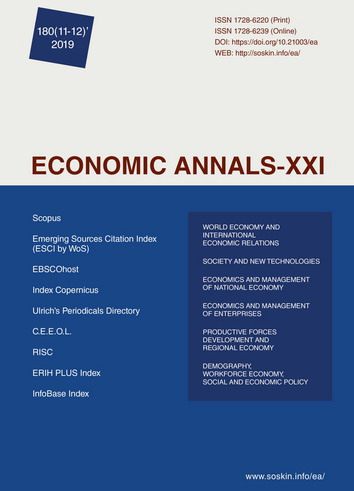Innovative development of the Russian economy: formation of support mechanism based on the world’s experience
Innovative development of the Russian economy: formation of support mechanism based on the world’s experience
Author(s): Elena Bessonova, Rustam BattalovSubject(s): National Economy, Socio-Economic Research
Published by: Institute of Society Transformation
Keywords: Innovation; Innovation System; Innovative Activities; Innovative Development; Innovation Efforts;
Summary/Abstract: The authors analyze the features of innovative development in Russia and foreign countries, discuss the experience of building an innovation system, consider its areas that need more in-depth research, as well as some features of its formation and adaptation to the rapidly changing needs of scientific and technological progress in order to achieve its maximum positive impact on the socio-economic system. A special attention is paid to the conceptual approaches to support innovation for the formulation and implementation of the government innovation policy, as well as to the current state of the innovative development, assessing its bottlenecks from one side and prospects – from the other.The analysis has shown that presently, all the main elements of the innovation system that exist in the foreign countries are represented in Russia as well, and the volume of the state funding for research and development tends to grow. The main problem is that the implemented measures of the state support for the innovative development do not entail tangible results, including structural changes in the economy. Especially if comparing with the countries-leaders in innovation who exceed Russia in many times. The key problems in the innovative development of the Russian economy which must be addressed in the actualized government innovation policy we summarize as following: underestimating the role of science and innovation in achieving national economic security and increasing the country’s competitiveness; low efficiency of the current system of government control of innovative development; lack of an integrated innovation strategy; low level of research staff potential; imbalances in levels of regional development; imbalance between the level of education and the level of labour force qualification; low innovation indicators and demand for innovation in the business environment; problems in the field of innovation legislation; insufficient financing of activities in the field of scientific research and development; low level of development of technology commercialization process.
Journal: Економічний часопис - ХХІ
- Issue Year: 180/2019
- Issue No: 11-12
- Page Range: 97-109
- Page Count: 13
- Language: English

